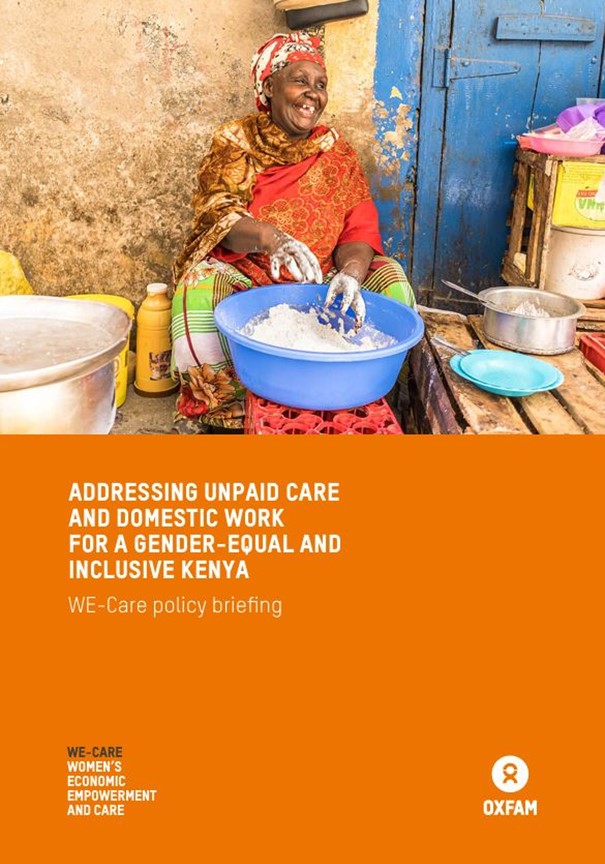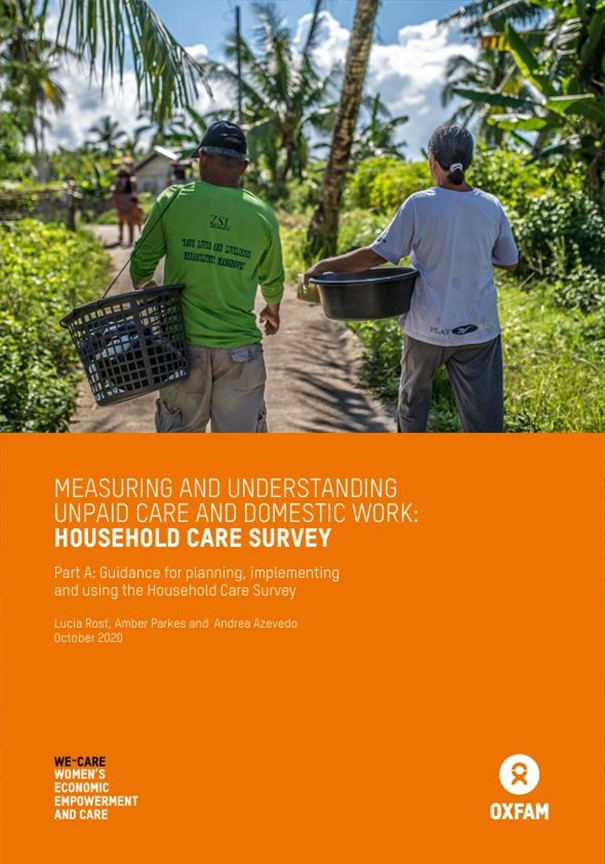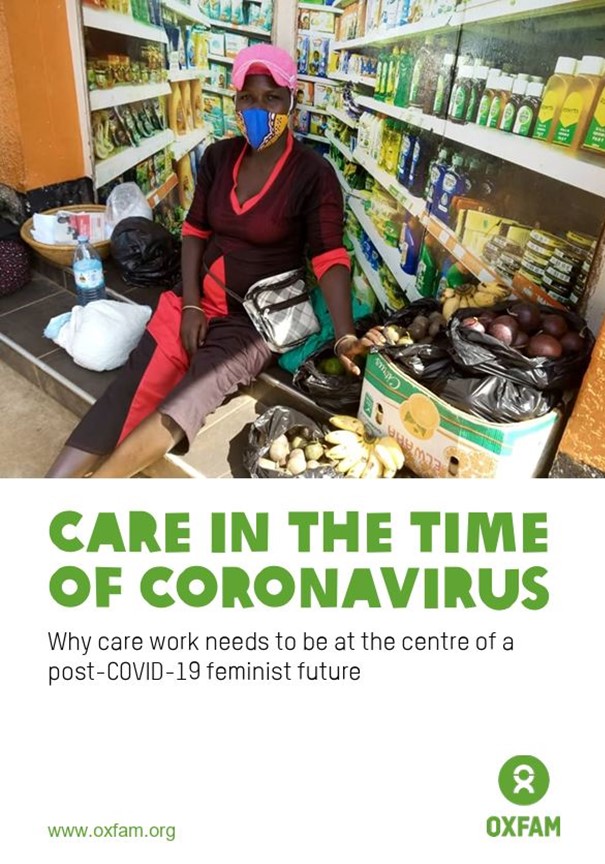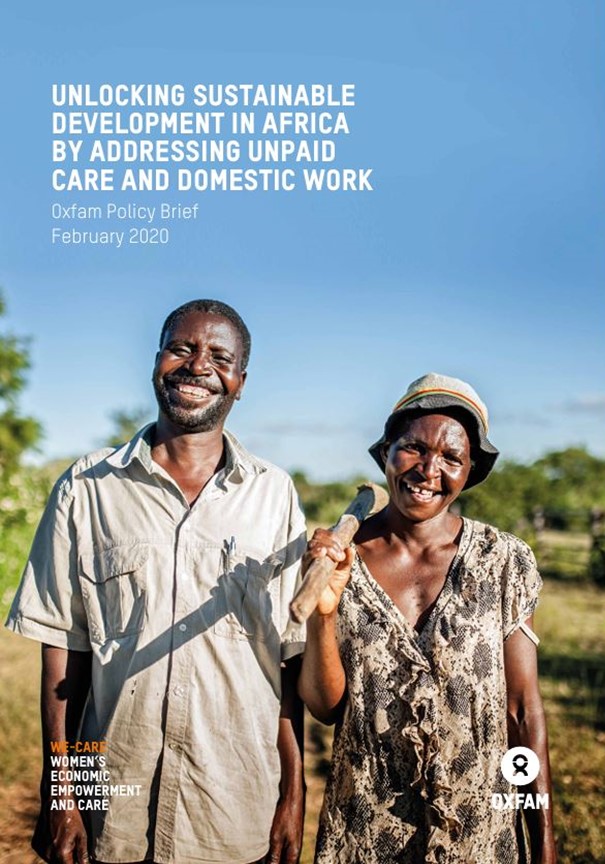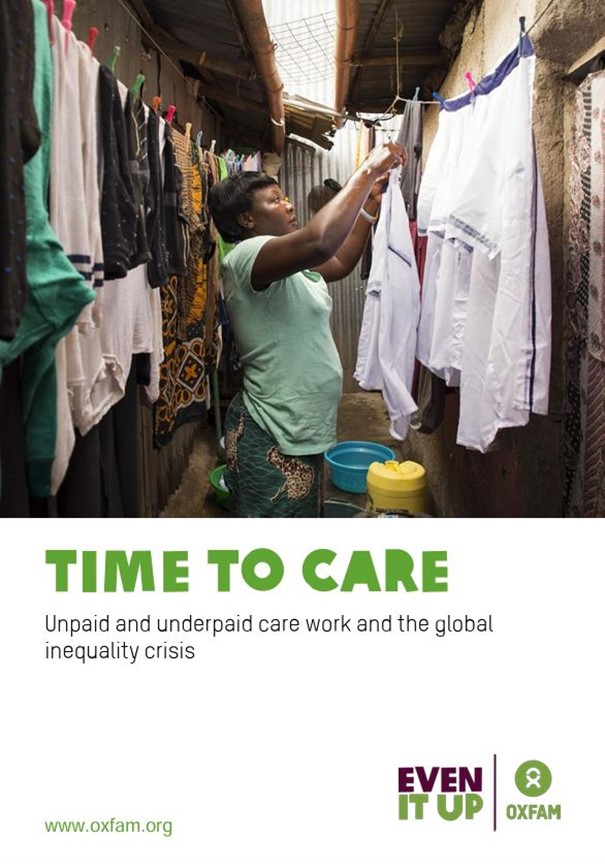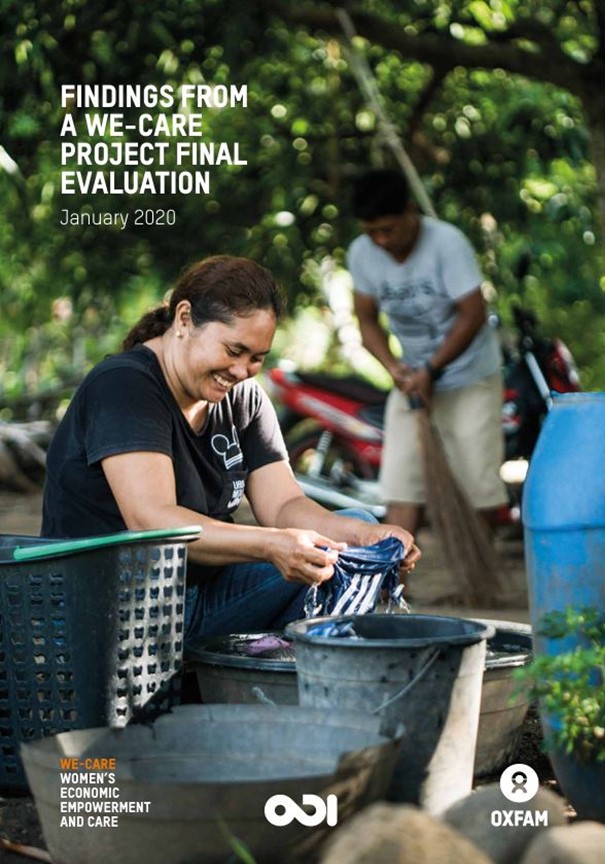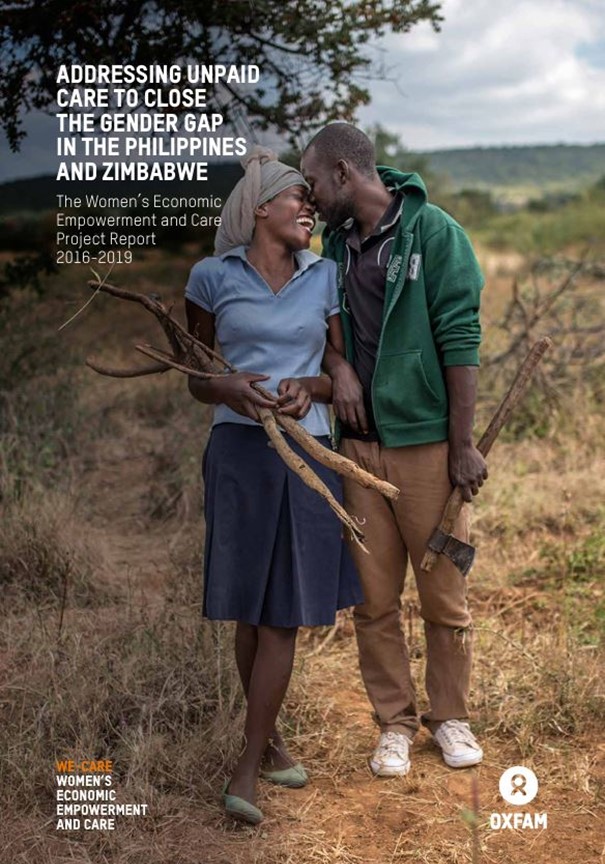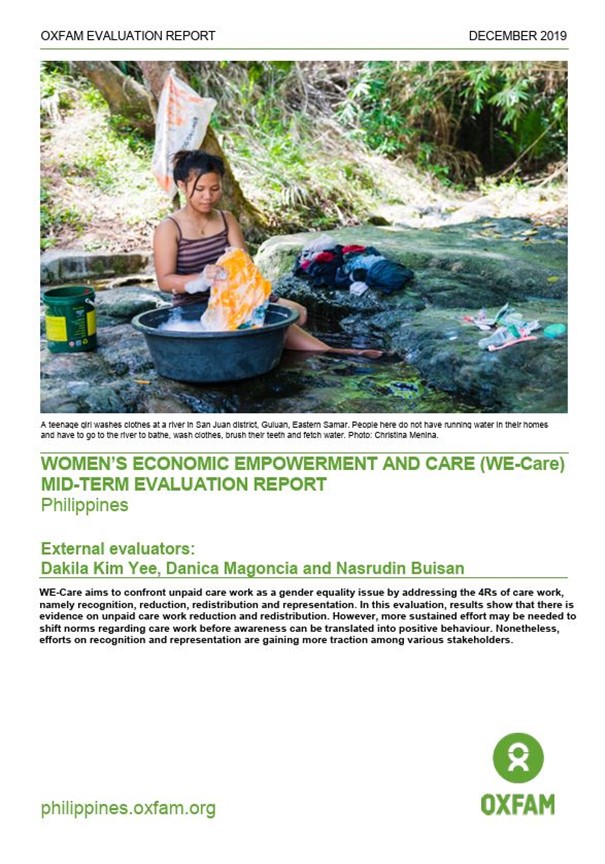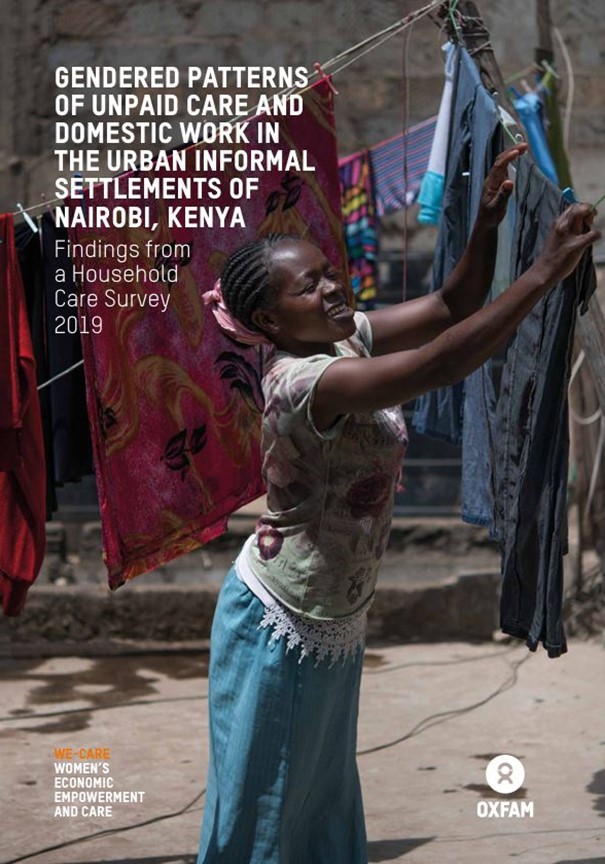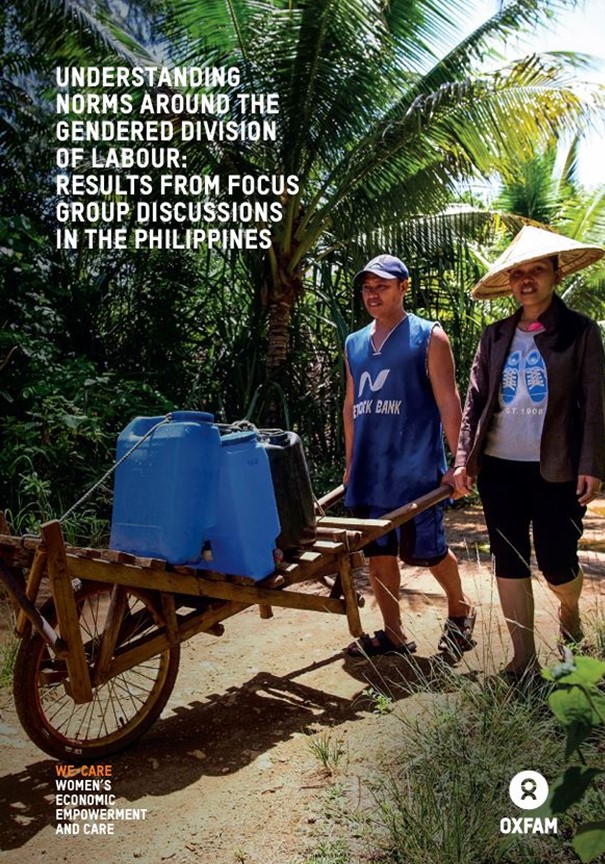Addressing unpaid care and domestic work for a gender-equal and inclusive Kenya
This policy brief outlines why unpaid care work is a critical development, economic and gender equality issue for Kenya. It draws on two sets of evidence from Oxfam’s Women’s Economic Empowerment and Care (WE-Care) programme, which explore the impact of women and girls’ heavy and unequal unpaid care responsibilities both before and during COVID-19.

